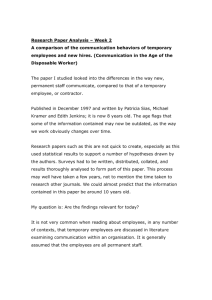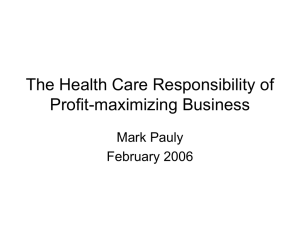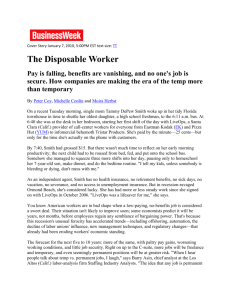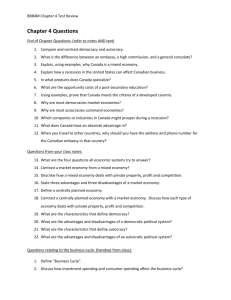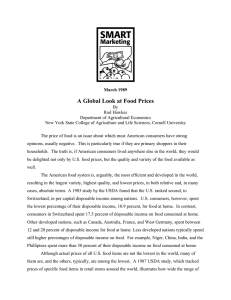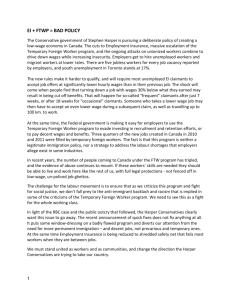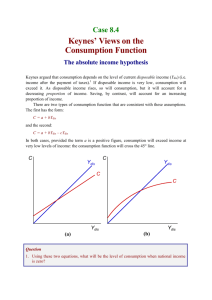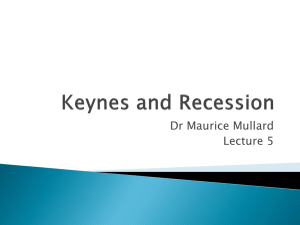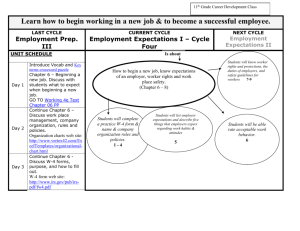The Disposable Worker
advertisement
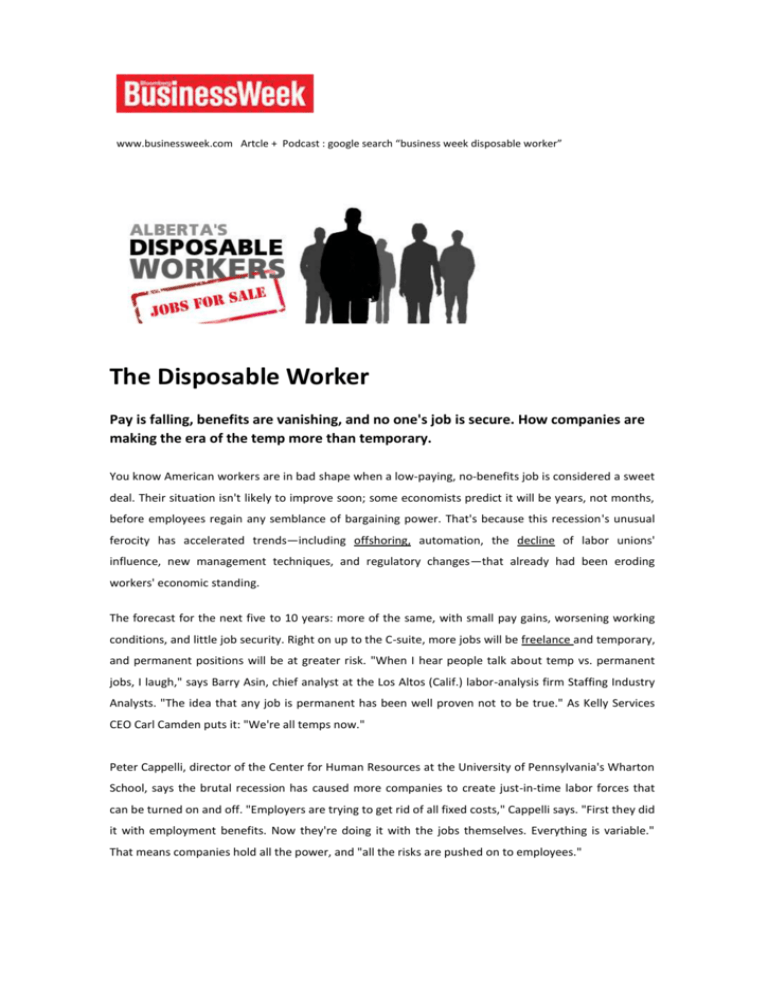
www.businessweek.com Artcle + Podcast : google search “business week disposable worker” The Disposable Worker Pay is falling, benefits are vanishing, and no one's job is secure. How companies are making the era of the temp more than temporary. You know American workers are in bad shape when a low-paying, no-benefits job is considered a sweet deal. Their situation isn't likely to improve soon; some economists predict it will be years, not months, before employees regain any semblance of bargaining power. That's because this recession's unusual ferocity has accelerated trends—including offshoring, automation, the decline of labor unions' influence, new management techniques, and regulatory changes—that already had been eroding workers' economic standing. The forecast for the next five to 10 years: more of the same, with small pay gains, worsening working conditions, and little job security. Right on up to the C-suite, more jobs will be freelance and temporary, and permanent positions will be at greater risk. "When I hear people talk about temp vs. permanent jobs, I laugh," says Barry Asin, chief analyst at the Los Altos (Calif.) labor-analysis firm Staffing Industry Analysts. "The idea that any job is permanent has been well proven not to be true." As Kelly Services CEO Carl Camden puts it: "We're all temps now." Peter Cappelli, director of the Center for Human Resources at the University of Pennsylvania's Wharton School, says the brutal recession has caused more companies to create just-in-time labor forces that can be turned on and off. "Employers are trying to get rid of all fixed costs," Cappelli says. "First they did it with employment benefits. Now they're doing it with the jobs themselves. Everything is variable." That means companies hold all the power, and "all the risks are pushed on to employees." The era of the disposable worker has big implications both for employees and employers. For workers, research shows that chronic unemployment and underemployment cause lasting damage: Older people who lose jobs are often forced into premature retirement, while the careers of younger people are stunted by their early detachment from the working world. Even 15 years out of school, people who graduated from college in a recession earn 2.5% less than if they had graduated in more prosperous times, research has shown. Diminishing job security is also widening the gap between the highest- and lowest-paid workers. At the top, people with desirable skills can earn more by jumping from assignment to assignment than they can by sticking with one company. But for the least educated, who have no special skills to sell, the new deal for labor offers nothing but downside. Employers want flexibility, of course. But if they aren't careful they can wind up with an alienated, dispirited workforce. A Conference Board survey released on Jan. 5 found that only 45% of workers surveyed were satisfied with their jobs, the lowest in 22 years of polling. Questions on the text… 1. How do we know that things are bad in the American employment market? 2. Which phrase in paragraph 1 relates to an employee’s ability to negotiate? 3. Is the phenomenon of temping limited to low skilled jobs? Justify your answer. 4. What is the most recent cause of the temping phenomena? 5. Which two social groups are affected most negatively by persistent unemployment? Discussion points… 1. What are the advantages and disadvantages of working with a short-term contract? 2. Is it morally wrong of corporations to create ‘perma temps’? 3. Companies complain that contracts in Spain are bad for business because they make it impossible to fire people. Do you sympathise with this view? 4. Does offshoring have an important role in the decrease of permanent jobs? 5. There are less permanent jobs than 30 years ago. Was our parents’ world better to live in?
